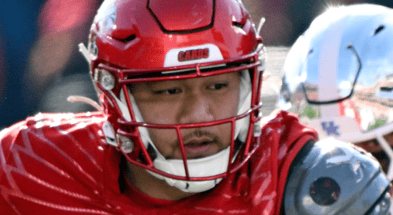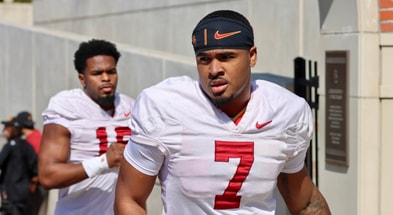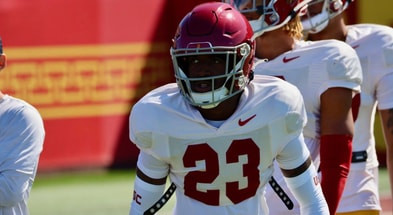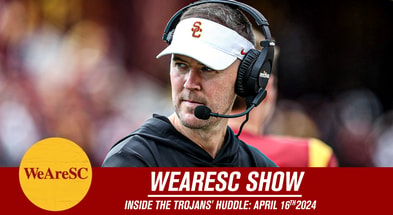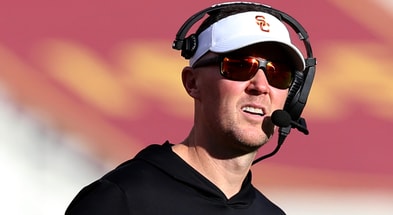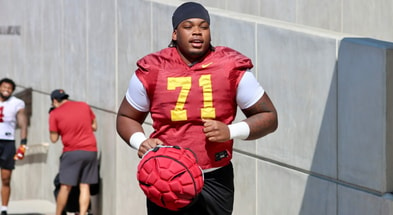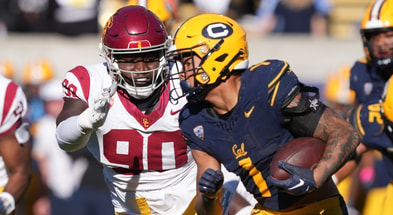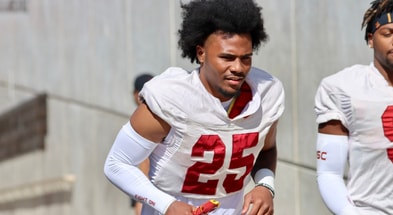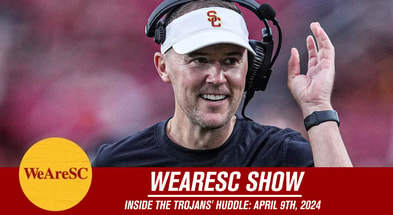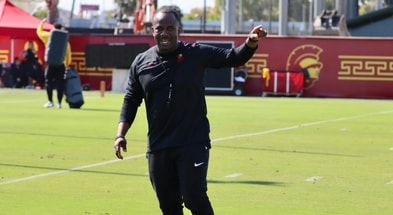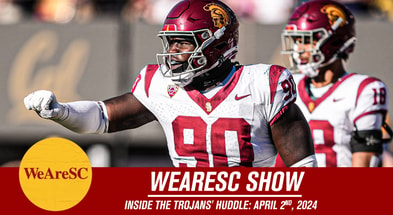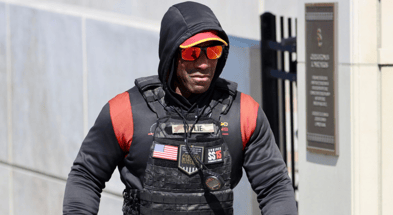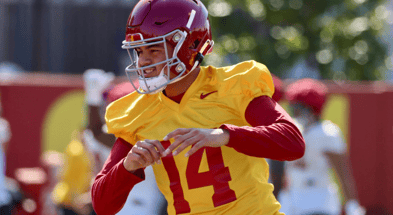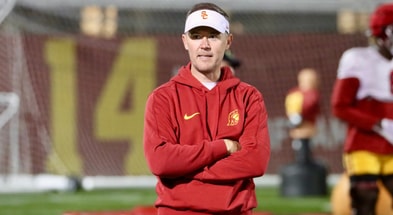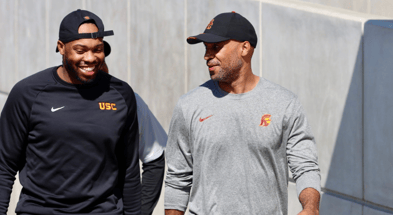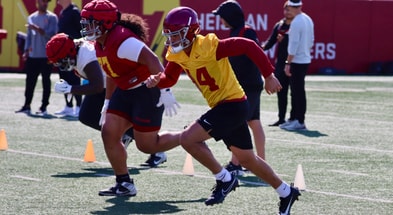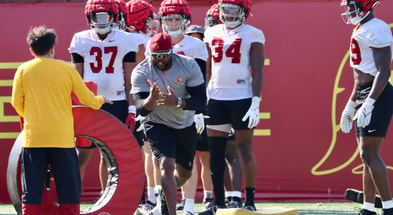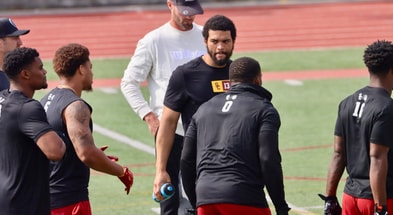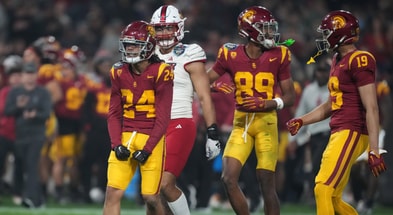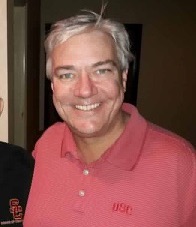Musings from Arledge: It's Winning Time
Imagine going into work tomorrow and hearing the boss say that there will be “a large number” of firings in the next couple of months. Stressful, no? That’s essentially what USC’s football players just heard from Lincoln Riley, who says there is a lot of flexibility on the roster, and that USC will take a “large number of transfers” after spring practice. You can’t take on a large number of new guys without getting rid of a lot of the old guys. USC’s spring practice sessions will be an extended tryout for many members of the 2022 team.
And this is after USC has already lost a significant number of players to the portal, which means that the guys everybody would expect to be purged may already have left. Jack Welch used to argue that companies should fire the bottom 10% of their workforce every year. But what if the bottom 10% is already gone, and the boss is still saying there will be a large number of replacement workers brought in? That’s rough, and quite the motivational tactic. I guess we’ll see how badly a lot of these guys want to be USC football players.
Well, we won’t see, because practices are closed. But somebody will see, and some news will trickle out in dribs and drabs. We’ll hear bits and pieces of information and try to piece it together. I will certainly do so, and I will offer – free of charge! – a spring practice analysis, based on nothing other than rumor, innuendo, press conference quotes, and my own over-eager imagination. You’re welcome.
Obviously, not everybody’s worried about the continuing purge. I don’t think Caleb Williams is sweating whether he’ll make the roster this fall. Being that he’s the second-highest-paid guy at the university, he probably isn’t worried about much of anything other than where to park his new Mercedes.
He’s not alone. Realistically, the offensive roster is probably close to its final version. The Trojans may take another QB and RB for depth. Another OL wouldn’t be a terrible idea. And if a superstar wanted to jump on board at almost any position, you’d take ‘em. But I think that offensive group is probably close to set.
On the other side of the ball, especially up front, things are very different. Tuli is a potential superstar. Nick Figueroa is a proven commodity. Shane Lee is going to take a starting spot. But there are a ton of question marks in the rest of the front seven. I don’t mean these guys are all bad players; there may be some very good players on the roster already. But there are no other proven players in the front seven. There are just a bunch of guys fighting for not only a position, but possibly even a roster spot.
The truth is that USC has recruited poorly at linebacker and defensive line for some years now, and the small number of blue-chippers that Clay Helton’s staff landed – guys like Raesjon Davis and Korey Foreman – have not flashed on Saturdays yet. They still might; I hope they do. But even if both of those guys become stars, USC will still have massive depth issues along the front seven. The new staff certainly seems to think so. Linebackers coach Brian Odom, after the first day of practice, says, “We’ve got to get so much better it’s not even funny.” Alex Grinch agrees. “Right now I see a whole lot of weaknesses…. It’s easy to say we’ve made progress, but we’ve got a long, long way to go.”
That makes sense. A program simply cannot survive years of recruiting neglect and malpractice. Roster holes will always bite you. Always. Hence the anticipated influx of talent after spring practice.
So, yeah, some of those defensive guys might be a little worried; maybe as nervous as the passengers sitting near me on last week’s trans-Atlantic flight, where I coughed non-stop for over eight hours because of a cold. It wasn’t Covid; I knew that; the airline knew that; the government of the undisclosed foreign location where I traveled knew that; we all knew that because I got tested before getting on the plane and provided proof. But the lady sitting across the aisle seemed less certain, I think, which would explain the dirty looks and the not-so-quiet complaint to the flight attendant. She didn’t even accept the hug I offered to prove there were no hard feelings.
I assume it was due to the coughing. I guess she could have been an Oklahoma fan who had read my articles or watched our Inside the Trojans’ Huddle YouTube programs. But probably not; she was reading for much of the flight and seemed able to handle the big words all by herself.
Lincoln Riley is trying to work his recruiting magic again. Dylan Raiola, the top-ranked quarterback in the 2024 class, was on campus and, based on the quotes following his visit, seems interested in USC. On one hand that’s surprising, because USC already has Malachi Nelson committed in the 2023 class. It’s not easy to land superstar QB’s in back-to-back classes.
But I’m not so sure Riley can’t do it. The transfer portal makes it easier than ever before. Look at it this way: Raiola could arrive before Nelson has starting experience, so he wouldn’t be at a huge disadvantage, especially if he came in early for spring practice. He can challenge Nelson for the starting spot and, if he loses, he can still take his free transfer and choose a new destination. It’s not a huge loss if he does. Lots of quarterbacks transfer these days. Instead of heading across the country right after graduating from high school, Raiola can take his shot at USC and see what happens.
For USC, it would be a win-win. You may not be able to keep both guys happy, but you also don’t have to. You just have to keep the best guy happy. And no, Iceman, we haven’t figured out who the best is, not yet, because there’s no better way to know than to have them compete head-to-head on Howard Jones Field. Let’s hope it happens.
Let’s also hope for great Big Man recruiting news in the near future, since USC gets the last shot to make a pitch to Josh Conerly this weekend. You don’t always need blue-chip recruits to have success on the O-line. Teams like Wisconsin show that consistently. Offensive line is a position where unheralded recruits become stars all the time. Guys grow into their bodies late or high school tight ends or basketball players bulk up. Skinny guys find a great pharmacist. It happens.
But there are some guys who are can’t-miss O-line prospects, guys who have the size and skill to be likely All-Americans and future high draft choices. No program stocks all of their O-line roster with guys like that. But every great program gets one or two of those guys every year.
There aren’t a ton of them on the West Coast, and the ones that have come up in recent years ran from Son of O Line Coach like he had Ebola. With the new regime, that has to stop. For Lincoln Riley to turn USC into USC again, there are certain big guys he absolutely must land.
Come on, Josh Conerly. Do the right thing.
A recent opinion piece by Sally Jenkins in the Washington Post on transgender swimmer Lia Thomas raised some interesting questions about the purpose of NCAA sports. I’m not going to wade into the political issues here. I just want to look at the author’s claims about what college sports are all about. There’s a point, I promise, so bear with me.
Jenkins writes:
[A]ll of us in life’s competitive arena are on the way to becoming someone profoundly different than we were, and keeping score is just a way to track the arc of a person from youth to prime to past it. If you subtract the aim of becomingness from competition just because you’re afraid of a Lia Thomas and make it strictly about the chance to win a prize, then you might as well go to an amusement park and shoot a squirt gun at a clown face because it will have about as much meaning….
What is the real aim and value of NCAA competition? Is it not to grow people? Surely, it’s about more than just vaulting a small subset of young talents on to a podium for the sake of name-image-and-likeness deals and spots in the Olympics. It’s supposed to be about exploring who you are, whether on the pool deck or starting block or basketball floor, and the truth is that “every person has multitudes in them,” as Cooper’s wife, journalist Allison Glock, observed in her own work. That’s the real worthwhile inquiry of college sports.
Sally Jenkins, Washington Post
There is something to what Jenkins says. Clearly, for college sports to be part of a university’s educational mission, the sports have to be about teaching something, about helping young people to grow and learn. I’m a big believer that sports are a great teacher. NCAA sports are about teaching valuable life lessons, including teamwork, delayed gratification, hard work, discipline, and many others.
But Jenkins is also missing something important. People care whether one athlete has an unfair advantage because sports are also about winning. The truth is you can’t teach those life lessons nearly as effectively unless the result matters. That doesn’t mean you can’t learn from losing. I know from personal experience that you learn a great deal when you lose. But what you learn from losing, you learn because the loss matters, because it’s devastating to see all of your year-round effort go up in flames. Don’t tell someone who has invested grueling hours every day, all year in the weight room, on the track, on the field, and often in the office of a doctor or physical therapist that winning isn’t all that critical as long as you’re growing and exploring who you are. It’s offensive.
But Jenkins’ perspective is important for us to understand, because many university professors and administrators share Jenkins’ view that their sports programs are just about teaching some life lessons and that winning doesn’t matter that much. Many of those professors and administrators also think sports are a poor way of teaching those lessons and therefore aren’t very important at all. Before USC hired Lincoln Riley, I would have been willing to wager real dollars that the people who run USC share that view. And make no mistake: there are many people in positions of power at USC (and virtually every other university) who think this way.
This is why so many schools simply aren’t dedicated to winning. Rice doesn’t really care about winning football games, does it? I think UCLA and Stanford are only lukewarm on the topic. USC wasn’t exactly full of fire the last few years.
And it’s not just professors and administrators. Some players and coaches don’t care as much as others. I would never accuse an NCAA football coach of not caring about wins and losses. They all do. They must. But there are degrees of caring – with universities, with coaches, with players. Let’s face it: all NBA players care about winning. Michael Jordan just cared far more than most. And it showed. When Clay Helton got teary-eyed talking about how his players were warriors after truly embarrassing performances, it seemed like Clay Helton may not have cared about winning as much as Nick Saban or Pete Carroll. And it showed.
When you read about Lincoln Riley deciding to gut large portions of his current roster after spring practice, this is why. Lincoln Riley was brought here to win. He’s making absurd money to win. His entire career is on the line, and if that means he needs to find other guys with more size, more speed, more willingness to separate a receiver from the ball, that’s what he’s going to do.
USC has the tradition, recruiting grounds, and – it’s now clear – money necessary to win at the highest level. But only if USC decides that winning football games is mission-critical. For the first time in many years, I think USC does believe that and has made real investments in pursuit of that goal. It’s what gives me hope for the future of the program.
So, okay, Lincoln, hit that transfer portal. As Magic used to say, it’s winning time.
